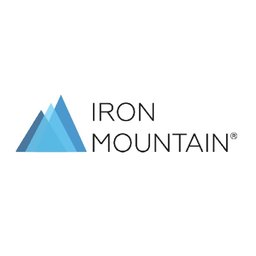Job Opportunities in South Africa

October 18, 2024
Bluespec Holdings
Pretoria
FULL TIME
Operations Manager
Job Purpose
Responsible for overseeing the day-to-day operations of the emergency medical services (EMS). This role involves managing staff, ensuring the efficiency of operations, maintaining compliance with regulatory standards, and striving for excellence in service delivery. The Operations Manager ensures that all emergency medical operations run smoothly and effectively, providing high-quality care to patients
Responsibilities
1. Operational Management
3. Resource Management
4. Compliance & Quality Assurance
5. Strategic Planning & Development
6. Crisis Management
7. Stakeholder Communication
Responsible for overseeing the day-to-day operations of the emergency medical services (EMS). This role involves managing staff, ensuring the efficiency of operations, maintaining compliance with regulatory standards, and striving for excellence in service delivery. The Operations Manager ensures that all emergency medical operations run smoothly and effectively, providing high-quality care to patients
Responsibilities
1. Operational Management
- Oversee the daily operations of EMS, including the deployment of ambulances, personnel, and medical resources.
- Ensure that all EMS activities are conducted efficiently, safely, and in compliance with protocols and regulations.
- Monitor and manage response times, ensuring that emergency calls are responded to promptly and effectively.
- Coordinate with other departments to ensure seamless operations.
- Supervise, mentor, and lead EMS personnel, including paramedics, emergency medical technicians, and support staff.
- Manage staffing levels, ensuring adequate coverage for all shifts and peak periods.
- Oversee recruitment, training, and development programs to ensure that all staff are competent and well-prepared.
- Conduct performance evaluations and manage staff performance, including handling disciplinary actions when necessary.
3. Resource Management
- Oversee the maintenance and readiness of EMS vehicles, equipment, and medical supplies.
- Ensure that all equipment is regularly inspected, maintained, and replaced as needed to meet operational demands.
- Manage procurement of medical supplies and ensure proper inventory control.
- Optimize the use of resources to improve efficiency and reduce costs without compromising service quality.
4. Compliance & Quality Assurance
- Ensure that all EMS operations comply with national, provincial, and local regulations, as well as organizational policies and procedures.
- Implement and maintain quality assurance programs to monitor and improve the standard of care provided by EMS personnel.
- Conduct audits and reviews of operational procedures to identify areas of improvement.
- Ensure that all incidents, accidents, and near-misses are reported and investigated, with appropriate corrective actions taken.
5. Strategic Planning & Development
- Contribute to the development and implementation of strategic plans for the EMS department.
- Analyse operational data and trends to inform decision-making and planning.
- Identify opportunities for service expansion, process improvements, and innovation in EMS delivery.
- Participate in the development and management of the EMS budget, ensuring cost-effective operations.
6. Crisis Management
- Lead the response during major incidents or disasters, coordinating the deployment of resources and personnel.
- Serve as the primary point of contact during emergencies, ensuring effective communication and collaboration with other agencies.
- Develop and maintain emergency response plans, ensuring that the EMS team is prepared for various types of crises.
7. Stakeholder Communication
- Build and maintain strong relationships with key stakeholders, including hospitals, government agencies, and community organisations.
- Represent the EMS department in meetings, forums, and public events.
- Address any concerns or issues raised by stakeholders, ensuring the are resolved promptly and effectively.
Critical Experience:
- Minimum of 5-7 years of experience in EMS, with at least 3 years in a managerial or leadership role.
- Proven track record in managing emergency medical operations and leading teams in a high-pressure environment.
- Matric
- Bachelor's degree in emergency medical care, Health Services Management, Business Administration, or a related field.
- Minimum of Intermediate Life Support.
- Registration with the Health Professions Council of South Africa (HPCSA).
- Additional qualifications in management or leadership are advantageous.
- Strong leadership and people management skills.
- Excellent organizational and time-management abilities.
- Proficient in the use of EMS-related technology and software.
- Strong problem solving and decision-making skills.
- Ability to work under pressure and manage multiple tasks simultaneously.
- Excellent communication and interpersonal skills.
- Valid driver's license with a Professional Driving Permit (Pr DP).
- Willingness to work irregular hours, including nights, weekends, and public holidays, as required.
- Clear criminal record.
- Strong physical and emotional resilience.
We regret to inform you that this job opportunity is no longer available
Latest Job Opportunities


October 20, 2024
EY
Associate / Senior Associate IT Audit: Johannesburg & Cape Town
Cape Town
View Details





October 20, 2024
Stellenbosch University
Lecturer: Department of Public Law
Stellenbosch
View Details
October 20, 2024
City of Cape Town
Assistant Professional Officer - IT Change Control Coordinator IS&T
Cape Town
View DetailsSimilar Jobs



September 4, 2024
University of the Free State
Deputy Director: Security Operations (post level 6)
Bloemfontein
View DetailsNew Jobs from This Company




